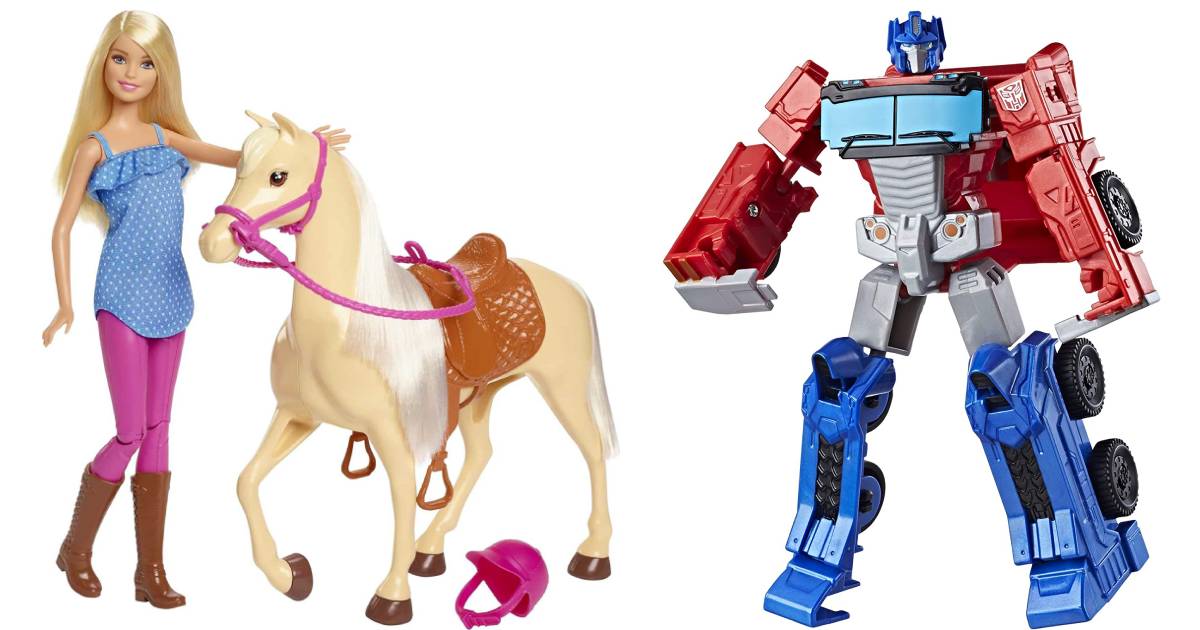
Hasbro and Mattel Make a Play for Cross-Licensing
For the first time ever, Mattel and Hasbro are bringing together some of the biggest toy brands in the world.
The companies unveiled several multi-year licensing agreements to create co-branded toys and games. These deals focus on Barbie (Monopoly games launching fall 2023) and Transformers (UNO games hitting shelves later this year and Hot Wheels vehicles set to debut in early 2024).
This partnership comes as Hasbro and Mattel continue to expand their sizeable film-related businesses. Both companies have new movies due this summer with Barbie (July 21) and Transformers: Rise of the Beasts (June 9).
While there has been speculation about a potential merger between the companies for years, for the time being there appears to be no agenda beyond two companies seeking to expand their IPs. In releasing earnings last week, Mattel and Hasbro executives gave no indication that the agreements are anything more than a licensing deal.
“We have licensing agreements across the entertainment industry, including with toys,” Hasbro CEO Chris Cocks said. “I am excited about the Mattel collaboration, and it joins those with other big toy companies like Spin Master and LEGO, and smaller players like Just Play, Basic Fun, and Play Monster. So, it’s a way to extend our brands, monetize our IPs, and leverage our own category captains for things like the Barbie crossover for Monopoly.”
For his part, Mattel CEO Ynon Kreiz mentioned the Hasbro licensing agreement on a conference call with analysts, listing it alongside deals like the company’s agreement for the Disney film Wish, which is being released November 22. Mattel also launched sales last week for toys connected to Disney’s The Little Mermaid film, which is being released on May 26.
“[The Hasbro agreement] is really a catalyst for us to extend the investment thesis of unlocking the value of our IP and movie, content, and digital gaming,” Kreiz said. “The extensions really give us the opportunity to broaden our reach, drive revenue, and monetize the [Barbie] brand as a franchise.”
Previously, the companies were only ever competitors, not collaborators. For example, Mattel inked a global licensing agreement for the Disney Princess and Frozen franchises in 2022 after Hasbro’s deal for those franchises (inked in 2016) expired.
But this partnership could mark the beginning of a new era, as both Hasbro and Mattel have made no secret of plans to expand outbound licensing. Mattel hired former Disney executive Josh Silverman last year, while Hasbro brought in former World Wrestling Entertainment executive Casey Collins in 2018, both with charges to expand their companies’ respective licensing businesses.
In cross-licensing their IPs, Mattel and Hasbro open up the possibility of further extending the agreements as both companies dig ever deeper into their brand portfolios. This could result in new deals that incorporate other brands across additional categories.
The announcement also means that speculation about a potential merger between the companies will continue, though the idea has largely been dismissed in the past due to potential antitrust concerns.
In a research note, DA Davidson Equity analyst Linda Bolton Weiser said she and her team had “fleeting thoughts” about a potential merger given the companies are now more globalized with less concentration in toys. “With the demise of Toys “R” Us and other retailers like Kmart, the toy companies’ customer base is that much more concentrated, supporting the notion that consolidation is warranted,” Bolton Weiser said.
However, others believe a strategy that focuses strictly on brand building—and side-steps complicated merger procedures—is best.
“I don’t see any downside, this deal allows Hasbro and Mattel to leverage their best capabilities,” said Christopher Byrne, Owner of Byrne Communications. “I don’t think anyone is interested in an acquisition of that scale because of the headache involved, especially when you can develop brand- and product-specific deals that support existing strategies and leverage the relative strengths of both companies.”

















